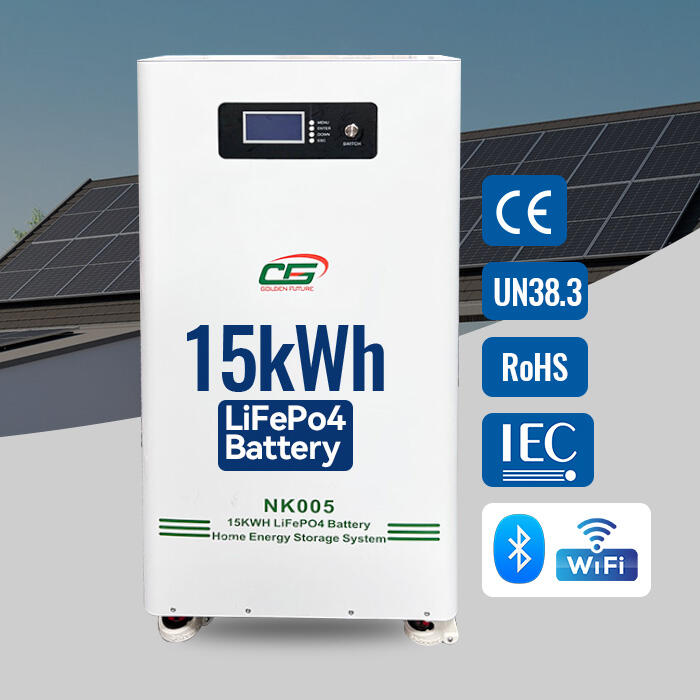The solar panels in your home solar system are exposed to the environment and collecting debris like dust and leaves as well as bird excrement. Dust and dirt build-up on them can block sunlight and lower their efficiency. You can use a hose with low pressure and a soft brush to clean them. Be careful not to scratch the panels. While you clean them, also inspect them for cracks, loose components, discoloration, and other defects. Moisture can get in through even tiny cracks and damage the panels. If you find damaged panels, repair them as soon as possible to ensure your home solar system solar panels are operating efficiently.

You may want to avoid letting the batteries charge to 100% continuously or letting them drain completely often. Most batteries operate best when the charge is between 20-80% during regular charge cycles. Staying with these specifications may result extended cycle life to 6000+. You want to monitor the batteries temperature. Excessive heat or extreme cold batteries are negatively impacted. If it is too hot, ensure good ventilation. If it is too cold, it should be in a place that stays above freezing. The battery connections should be checked periodically, usually every few months, to ensure proper fastening and in the absence of corrosion. Properly maintained batteries may provide dependable energy storage in systems designed for photovoltaic energy.
Every home solar system has an inverter. It converts solar-generated DC power into AC power. Because of its key function, an inverter should be checked frequently. While most inverters come with monitoring systems, including displays that show status information, any inappropriate errors signals, or complete absence of the display, should trigger an alert. Focus your attention to the electrical connections between the solar panels, inverter, and battery (if applicable). Connections can loosen over time and with the weather. Loose connections can lead to energy loss or be dangerous. Systems should be safe to check, and all connections should be tightened and checked for damaged insulation. Remember that electrical work can be dangerous, and do not hesitate to call an electrician if you have any doubts, especially if the situation you are facing seems complicated.
You need professional maintenance once per year even if you do regular maintenance yourself. There are tools that professionals use which help them see things you cannot. For example, they can see how much energy each solar panel is producing and if the inverter is losing efficiency. They can also find small problems like hidden wiring, early panel deterioration, and degraded panels. They can also update the smart solar equipment software if it is out of date. It is like a yearly check up for your system which software keeps everything running and avoids costly repairs.
Anything from heavy rain and strong winds to snow can wreak havoc on your solar system at home. Before storms roll in, be sure to check if the solar panels are firmly set on your roof. If you live in a cold area, after a snow fall, remove snow from the panels, but gently and with a soft tool. If you live in an area with heavy rain, make sure the area around the inverter and battery is dry, and remove any standing water. Take precautions to avoid water damage. If you get a hurricane or tornado warning, follow your system’s manual to turn the system off and avoid any electrical damage. By taking these small steps, you can protect your home solar system from a lot of damage.
The majority of domestic solar setups include a monitoring system (some even come with WiFi), which tracks the daily, weekly, or monthly energy production of their solar system. Create a routine and regularly note and log the metrics. A sudden decline in production, say in the range of mid production, on a sunny day, indicates something is likely wrong. This might be a case of dirty solar panels, a malfunctioning inverter, or a case of a loose solar panel connection. Rectifying the problem earlier will likely eliminate long periods of energy system wastage. Monitoring will also tell you when the system is most productive, generally in the middle of the day, and adjust your consumption accordingly. This will save you even more.